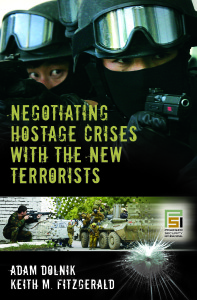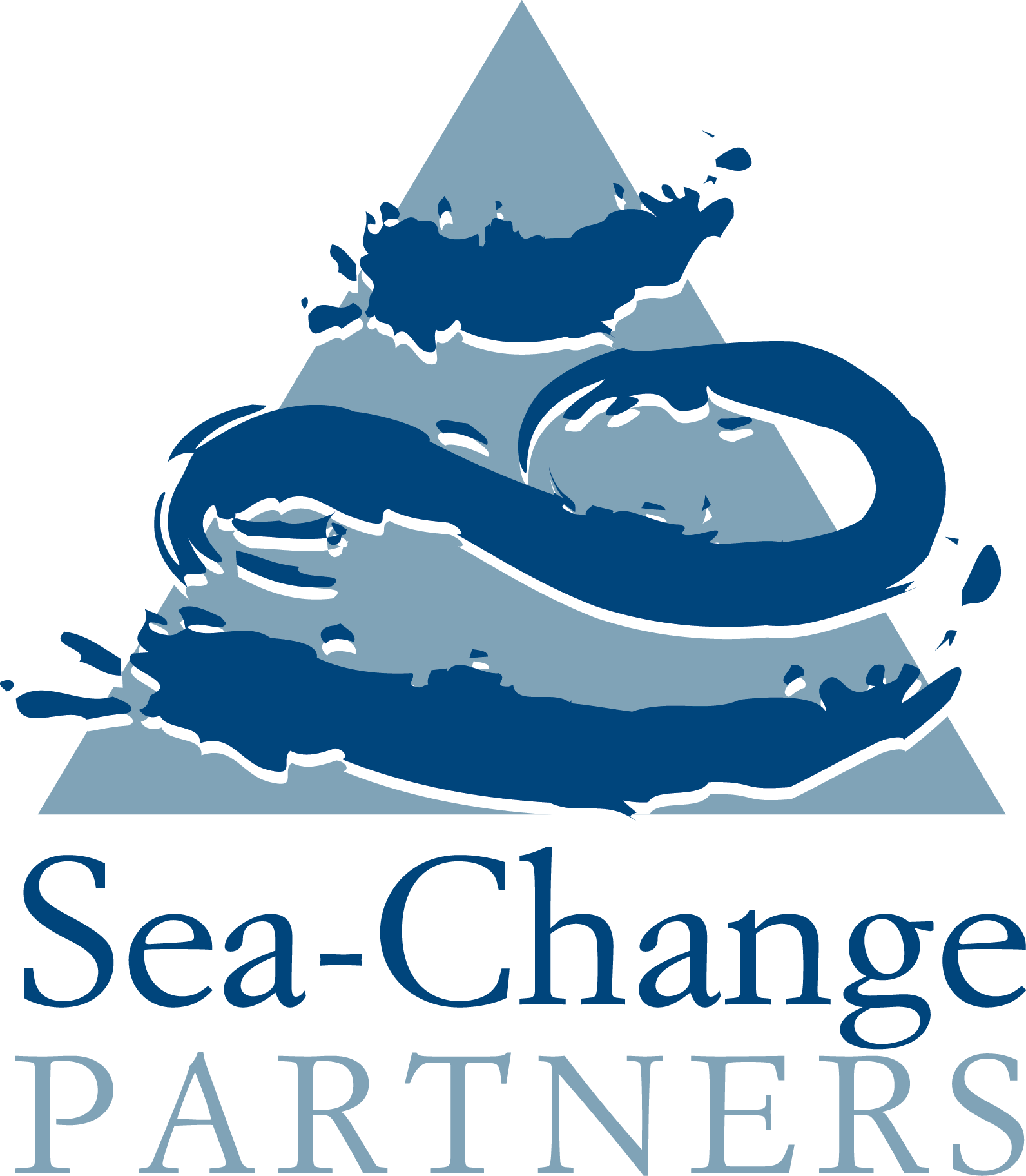Understanding Conflict

Negotiation is more than simply bargaining and deal-making. At Sea-Change we define negotiation more broadly as exercising influence on another’s thinking, behavior, and/or decision-making.
Negotiation is a critical skill
Countless business reviews and surveys suggest, time and again, that negotiation is one of the most important skill sets for people in any organization; whether public or private.
People in your organisation negotiate several times each day; with each other, with clients, with potential clients: What is at stake in those negotiations?
- The growth of your business?
- Important working relationships?
- Thousands, millions, or billions of dollars worth of deals?
- Your organization’s reputation?
- The happiness and effectiveness or your workforce?
- Attraction and retention of top talent?
We tend to assume that all conflict is bad, and we often confuse “conflict” with its more negative symptoms; confrontation and violence. In fact, conflict is an integral part of any relationship, no matter how good. Even in the best of relationships, people will have different preferences, different perspectives, and different thresholds for what is acceptable. While such tensions (conflict) often exist, intrigue, confrontation, and violence are but a few symptoms that indicate a failure to deal effectively with those tensions.
At Sea-Change, we prefer the term “conflict management” to the often-used term, “conflict resolution,” for a few reasons. Firstly, if conflict is an integral part of any relationship, then conflict itself cannot be “resolved.” While it might be possible to resolve substantive issues in dispute, the potential for conflict will often continue. If two people choose to fight over something, rather than to deal with the dispute in some more productive way, then solving the dispute won’t change the fact that they would have chosen to fight. Secondly, we at Sea-Change adhere to the notion that sometimes “solutions aren’t the answer.” While some issues in dispute might have simple solutions; that is not often the case. In most cases where conflict exists, there is no static solution; but rather, people experiencing conflict must apply ongoing skills, processes, and tools that allow them to manage tensions and relationships effectively (and even productively), over time — without violence or destructive confrontation.
Some also believe that avoiding conflict is a strategy for success. We know otherwise. Conflict avoidance is no substitute for effective conflict management, because sometimes tensions must be balanced and sometimes hard choices cannot be avoided without consequences. Everyone experiences conflict, and it is those who are best at dealing with it well who become the most effective leaders, the most valued members of teams, and the most sought-after employees. Conflict avoidance also prevents people from developing the capacity to cope with conflict, on the rare occasions when conflict becomes unavoidable.
In practice, being an effective conflict manager means understanding the nature of conflict, being able to diagnose conflict accurately, understanding the different types and sources of conflict, understanding the role of communication and relationship management, possessing the ability to deal with substantive disputes in less destructive ways, and knowing what skills, tools, and strategies it takes to manage conflict effectively.
Sea-Change Partners professionals are among the world’s most experienced conflict management trainers and advisors; having advised on conflict management efforts in business disputes and peace processes in over 100 countries and territories worldwide, at every level; from grassroots, community-based efforts, to mediation and alternative dispute resolution systems for the legal community and academic institutions, to consulting with heads-of-state in situations of civil war and violent identity-based conflict. In the private sector, we advise on commercial disputes, conflict in the workplace, tensions on the boardroom, and managing the “friction” that accompanies rapid change.
Sea-Change professionals also advise international organizations, private foundations, donors, and development agencies in “conflict sensitivity” and incorporating conflict management strategies when working in the world’s war zones. We have also helped international organizations and large corporations design grievance redress mechanisms (GRMs) and other processes for dealing with customer complaints.
Sea-Change Partners offers the following conflict management services:
Practical Skills Training:

Sea-Change Partners offers a complete curriculum of interactive courses that, together, comprise all the skills you need to be a truly successful negotiator.
Strategic Negotiation — The Fundamentals:
This foundation course, based on the ground-breaking approaches of the Harvard Negotiation Project, is designed to enhance your skills as a negotiator and your understanding of any negotiating situation; whether at work or at home. You will learn essential tools and practical ideas that will improve your results and make you more confident as a negotiator. No matter how good – or experienced – a negotiator you are, this course will help you to get better results, and to improve your performance over time.
Communication Tools for Negotiators & The Art of Difficult Conversations:
Communication is the means by which we negotiate. One of the most important skills a negotiator can develop is the ability to communicate effectively for expression and understanding. This course equips negotiators with practical tools for turning debate into dialogue, for clarifying misunderstandings, and for overcoming differences of opinion. Participants will also learn why understanding others is often the key to influencing them effectively. Participants will also learn how to be more effective at “difficult conversations;” essentially, any conversation you find difficult – from talking about relationships, to giving or receiving feedback, to asserting yourself when you know it will make you, and others, uncomfortable. These are the most essential communication skills for any negotiator – and for anyone exercising leadership.
Negotiation Self-Defense:
Have you ever felt “under attack” in a negotiation? Have people ever tried to manipulate you (and succeeded)? Negotiation Self-Defense is the art of dealing skilfully with extremely difficult negotiators and their tactics. Learn the tricks used by the most challenging negotiators — and what to do when you have to face them. This course includes simulated difficult negotiations with professionals who are expert at using the tricks and traps. Practice negotiating in the “hot seat” so that when you have to face the real thing; you’ll feel more confident, and you’ll know what to do to protect yourself and succeed.
A Strategic Approach to Persuasion:
Have you ever had trouble getting someone to make the decision you want them to make? Have you ever had to sell an idea – or a proposal — to a group of people? Influence is almost never a “one-size-fits-all” proposition. If you want to be effective, you need a strategic approach to these situations. This workshop will help you to improve your chances of getting a “yes” when it counts. The course includes choice analysis tools and strategic approaches to influencing individual decision-makers, as well as strategic approaches to influencing a group. It includes training in the art of sequencing and tipping points in influence strategies, and in the skills of being more effective without being confrontational.
Negotiating Inside & Out — Managing Internal & External Negotiations:
Have your internal negotiations – those with your superiors, subordinates, other departments, or other colleagues – ever made it harder for you to negotiate with customers or others outside your organization? Do you find it harder to negotiate with your family members, boss, or your colleagues than with strangers? This course gives you practical advice on how to negotiate effectively on “your own side of the table,” and on how to use your external negotiations to help you internally, and vice versa.
Managing Complex Multi-Party Negotiations:
Whether you are negotiating a new project with multiple stakeholders, a trade agreement, or an international treaty on climate change, this course will help you to understand your negotiating environment and to be more effective in a multi-party setting. The course will use multi-party role-play simulations and practical lectures to help participants learn how to diagnose the challenges, design processes, deploy strategies, and achieve better results in a complex multi-party negotiating environment.
Hostage and Crisis Negotiation:

Crisis situations place very specific demands on negotiators. Negotiating effectively in a high-stakes crisis takes special training. Sea-Change professionals are highly-experienced crisis negotiators who can help you negotiate more effectively when the stakes are high and the pressure is on. Our courses are based on years of practice negotiating with terrorists, militants, and hostage-takers and advising police, military, and diplomats, and executives on high-stakes crisis negotiations. Sea-Change routinely trains many of the world’s top counter-terrorism police forces in crisis and hostage negotiation. Sea-Change senior consultants, Adam Dolnik and Keith Fitzgerald are co-authors of Negotiating Hostage Crises with the New Terrorists, which is required reading in many top police and counter-terrorism organizations worldwide.

Executive Coaching:
Sea-Change professionals are among the world’s most expert negotiation coaches. Every top athlete in the world depends on a professional coach, and it is the best athletes who benefit the most from good coaching. We offer focused coaching for individual professionals in order to enhance their negotiation skills, improve their performance at the table, and achieve better bottom-line results. Sea-Change has a team of experienced professionals who will develop and implement a customized program of negotiation coaching and strategic assistance, in consultation with our clients.
Our coaching programs include initial baseline needs assessments; to align the coaching sessions with our clients’ learning objectives, to assess a negotiator’s strengths and areas of need, and to set appropriate targets. We then ensure that our coaches help negotiators get the most out of themselves by being skilled and prepared for their upcoming negotiations – and by having well-designed strategies for dealing with the negotiation and influence challenges they face.
Our coaching sessions usually include a mix of focused skills training, applied work on – and preparation for — real challenges, assisted practice in simulations and role-plays, and assessments, feedback and reporting. Sessions can be scheduled to accommodate our clients’ needs and schedules. Typical sessions are a half day (3 hours of coaching), and we work with our clients to determine the most appropriate setting. Depending on the challenges they face, some clients benefit from a formal, structured environment, such as their own workplace, while others benefit more from an informal setting, away from the office.
Expert Negotiation Assistance

Sea-Change Partners professionals act as advisors and coaches to negotiators worldwide to improve bottom-line return on negotiated outcomes via the following applied services:
Negotiation Simulations: Tools for Practice
Simulations exist to allow people to practice and to experiment – that is, to try new things in a learning environment where consequences are minimal. Participants can engage each other – and our professionals – in simulated, role-play negotiations in order to learn their strengths and weaknesses, improve their habits, refine their skills, and design better strategies. In short, there is no better way to learn and practice negotiation than to do it, with professional coaching and feedback.
(Video-recording of simulations with professional feedback and coaching is available).
Applied Strategies for Influence:
Sea-Change professionals will help clients to conduct systematic choice analysis in order to develop more effective influence and communication strategies for an upcoming negotiation. This may involve applying choice analysis tools, conducting role-reversal negotiations, and/or practicing conversations with professional coaching before you go for the real thing. There is no substitute for coming to the table confident and prepared.
Systematic Preparation for an Upcoming Negotiation:
Sea-Change can help individuals and teams of negotiators take the opportunity to prepare systematically for a given negotiation – with professional strategic assistance. Preparation will include a structured approach, using a comprehensive framework and scenario-based practice before the real negotiation. Much of your success in any important negotiation begins with how – and how well — you prepare. Professional help in preparation will make you both more confident – and more successful – at the table.
Advice for Difficult Situations:
We all face difficult negotiation situations. And there is no substitute for preparation. Negotiators who are prepared for challenges are simply going to be much more successful than those who are forced to deal with difficulties “on the spot.” Sea-Change Partners professionals will work with clients in order to prepare them for especially challenging negotiations (in general and/or for specific cases) and to achieve better-than-expected results, when it matters most.
Conflict Management & Relationship Management Strategies:
Often the most challenging parts of any negotiation are coping with conflict and dealing with relationship issues (that is, dealing with emotions, personal history, or the friction created by argument). Sea-Change Partners experts are among the world’s most experienced conflict managers. That experience includes direct assistance to leaders and negotiators in costly commercial disputes, civil wars, peace processes, diplomatic crises, hostage situations, and other intense conflicts – at the interpersonal and international levels. Our approaches have been proven to work in some of the world’s most intense conflicts. Surely we can help you…
Facilitated Brainstorming for Negotiated Solutions:
Sea-Change helps clients to think of the best possible substantive outcomes in a negotiation; exploring joint gains for maximum value, negotiating appropriate trade-offs, or the brainstorming of options and criteria to make them persuasive. If you are working with a team – or with clients – to solve important problems, overcome deadlock, or to take full advantage of strategic opportunities, then Sea-Change can help you to work effectively as a group and achieve superior outcomes.
Negotiation Process Design:
One of the most common reasons for poor outcomes in negotiations — and why negotiations lead to damaged relationships — is actually bad process. Yet most people do not choose – or design – a process for their negotiations, beyond – perhaps – setting an agenda. Professional negotiators know better, and the best negotiators are also good “process thinkers.” Even the world’s best negotiators cannot overcome the limits of bad process. And good process is often the key to success in any negotiation. Sea-Change professionals work with our clients as “negotiation architects” to improve the processes our clients use when they negotiate – leading to better outcomes, and unleashing the potential of their most skilled negotiators.
Enhanced Practice with Counterpart Experts
With advance preparation, Sea-Change Partners professionals will work with our clients who are facing an important negotiation by simulating that specific, upcoming negotiation and even hiring industry experts to play the role of the opposing side. In fact, where possible, we will help our clients to find actual people who have spent time negotiating on behalf of their counterparties in past negotiations. There is, quite simply, no better way to prepare for an important negotiation than to practice in a realistic simulation. This is the equivalent of lawyers using mock trials before actually going to court.
Customized Negotiation Scenarios and Simulations:

Because Negotiation and Influence are activities, like a sport, practice is an essential part of improving skills, designing strategies, and exercising your “negotiation muscles.” Practice means actually negotiating. However, the risk of “learning-by-doing” in real negotiations tends to be high; because there are real stakes in most of your negotiations – and, therefore, real consequences. We help our clients benefit from “real” practice, but without the real risk, by developing customized simulations and realistic negotiation scenarios that are based on our clients’ actual negotiations.
Sea-Change works with our clients to create simulations of their most common negotiations, their most important negotiations, and/or their most challenging negotiations.
- By simulating their most common negotiations, clients have useful internal training tools that can be used again and again, over time, to train new recruits, to practice new strategies, to experiment with new approaches, and to maintain the skill sets of all the people in the organization who negotiate.
- By simulating their most important negotiations, clients can improve their chances of success when the stakes are highest by making mistakes less likely and by sending people into the negotiation who are truly well-prepared. When you are facing an important negotiation, you should never be having it for real the first time. Good negotiators make sure they have experienced the negotiation in a role-play simulation before they actually get to the table.
- By simulating their most challenging negotiations, clients can make sure they are doing everything possible to overcome the obstacles they face — even before they actually face them. It is often far more difficult to solve a problem, or overcome an obstacle, while you’re under pressure at the table, than it is to do so with the pressures removed. Often the best way to design an approach to deal with challenges is in a simulation, where clients can adjust variables, experiment with different approaches, and better estimate potential consequences. And by practicing challenging negotiations, our clients develop the kinds of skills — and confidence – that make most routine negotiations far easier.
We want our clients to feel like they have “seen it all” by the time they get to the table.
